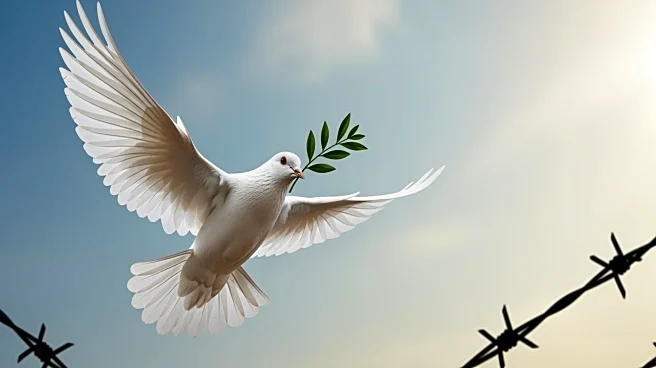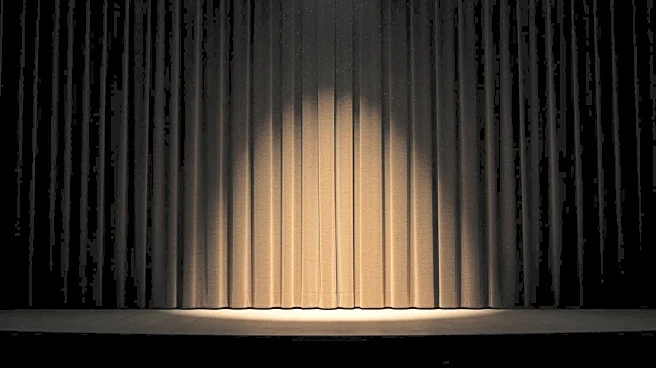What's Happening?
The Red Cross has facilitated the transfer of two bodies from Gaza to Israel, identified as hostages by Hamas. The remains of Ronen Engel, a photographer, and Sonthaya Akrasri, a Thai farm worker, were
returned under a ceasefire agreement. Both were killed during the October 7, 2023 attack and taken to Gaza. The return of these bodies is part of a broader ceasefire deal that included the release of living hostages and Palestinian prisoners. The delay in returning the bodies has caused outrage in Israel, as the ceasefire terms stipulated the release of all hostages.
Why It's Important?
The return of the bodies highlights the ongoing humanitarian and political challenges in the Israel-Gaza conflict. The delay in returning the bodies has strained relations and raised questions about the implementation of the ceasefire agreement. The situation underscores the complexities of hostage negotiations and the impact on families and communities affected by the conflict. The involvement of international organizations like the Red Cross emphasizes the need for neutral parties in conflict resolution.
What's Next?
The Israeli government may continue to pressure Hamas for the return of remaining hostages. The closure of the Rafah border crossing could impact humanitarian aid and movement in Gaza. The ceasefire agreement's implementation will be closely monitored by international stakeholders, potentially influencing future diplomatic efforts. The situation may lead to further negotiations and adjustments to the ceasefire terms.
Beyond the Headlines
The return of hostages' bodies sheds light on the emotional and psychological toll of the conflict on families and communities. The involvement of international organizations like the Red Cross emphasizes the need for neutral parties in conflict resolution. The situation highlights the broader humanitarian challenges in conflict zones, where political agreements intersect with human rights and ethical considerations.









